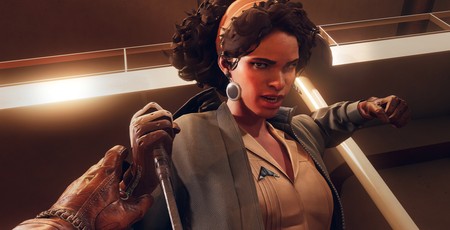
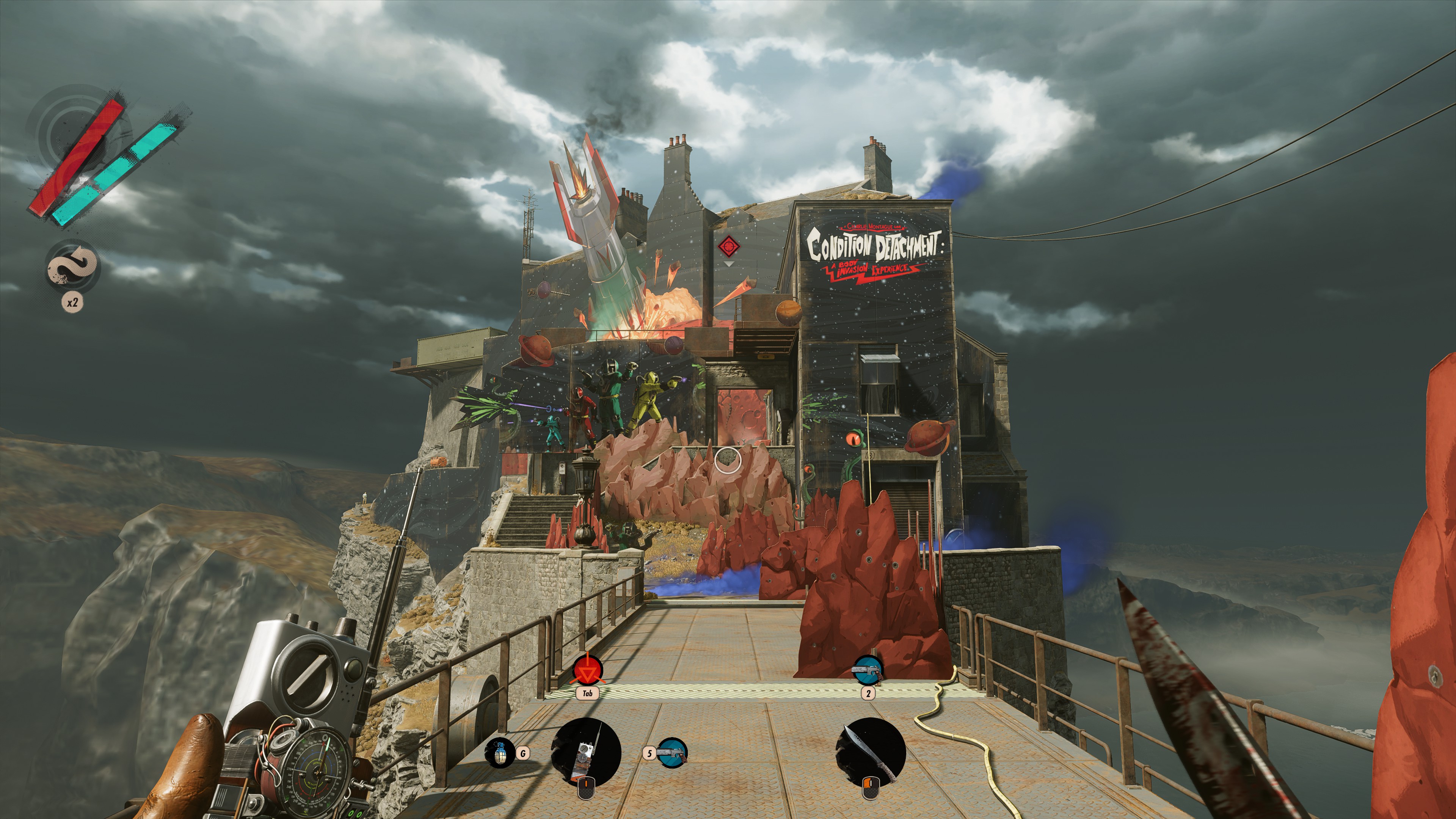
This, combined with the fact that acquiring a Slab multiple times lets you upgrade it, encourages repeat visits to Visionary strongholds. A cynic might say this is Arkane trying to make a smaller game stretch further, but aside from the fact that Deathloop is by no means a small game, this would be to completely miss the point. Deathloop wants you to see all the ways you can play a potential mission, rather than just one. If you ever played a mission in Dishonored, and wondered how you might have done it differently, Deathloop lets you do this as part of the game, rewarding you for exploring different avenues and experimenting with new approaches.
Two things make this approach work. The first is Arkane's typically layered system design. Mechanically, Deathloop is a loveable mongrel, cherry-picking the best bits from Arkane's previous games. Its selection of Dishonored-style powers includes Aether, which turns you invisible. Nexus links enemies together to the same fate while Karnesis is a modular force-push that can lift enemies into the air and slam them into the ground. These powers can be combined in multiple ways, such as linking enemies together with Nexus, before using Karnesis to push one of them over a cliff.
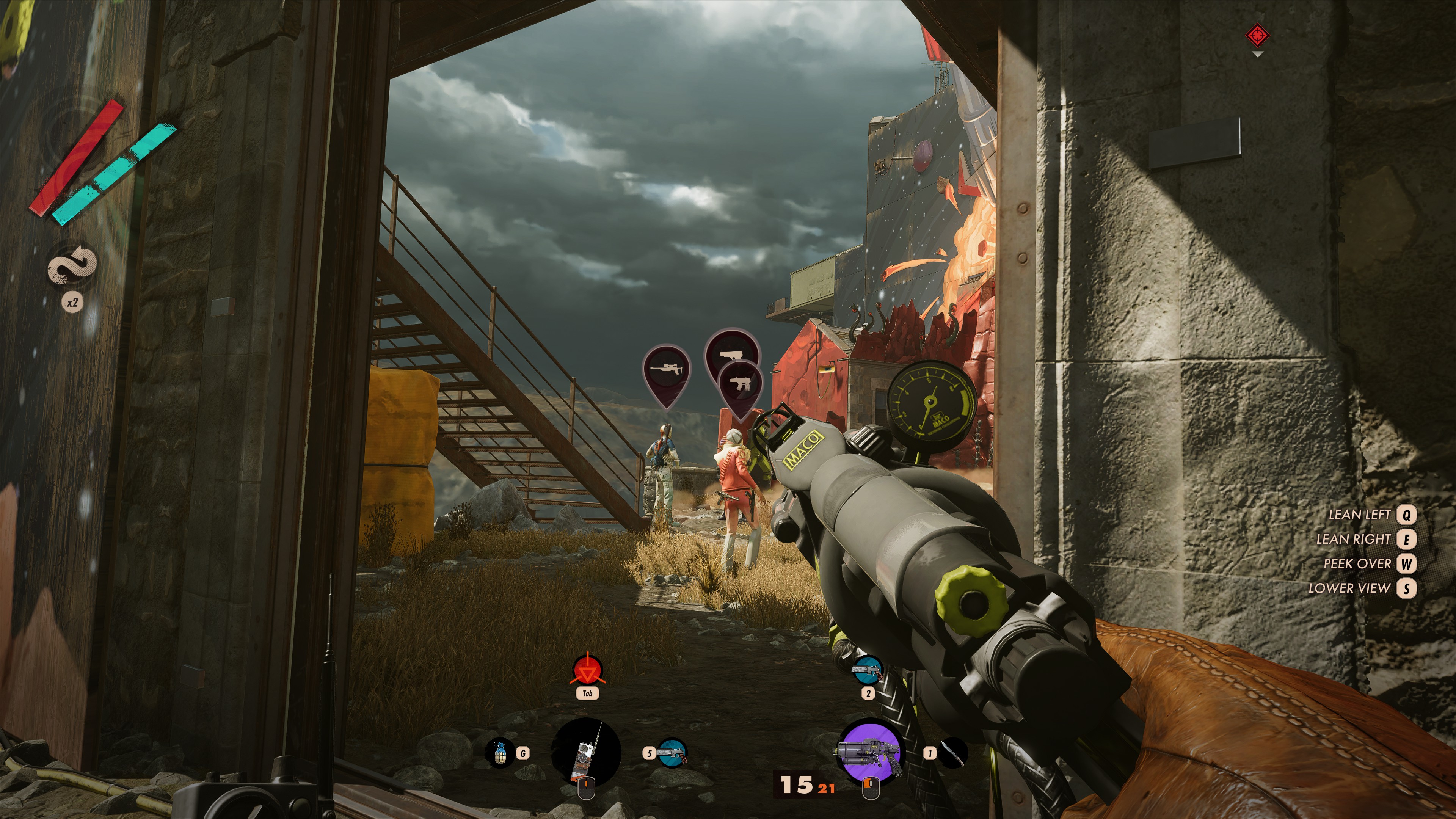
Accompanying these powers are a range of chunky firearms that blend Dishonored's creativity with the punch of Wolfenstein: Youngblood. Highlights include a silent nail-gun featuring one of the best reload animations I've seen in years, and a pair of twin pistols that can be connected to create a submachinegun. Even the kick from Dark Messiah: Might and Magic makes a return, letting you punt enemies down stairs and over precipices with a swift boot to the backside.
The second key component is Julianna. Unlike the other seven Visionaries, who are preoccupied with their own weird endeavours, Julianna dedicates herself exclusively to foiling Colt's plan, usually with something sharp and/or explosive. If you're in an area where a Visionary is present, Julianna will appear and attempt to kill you. And if you're playing online, she'll be controlled by another player.
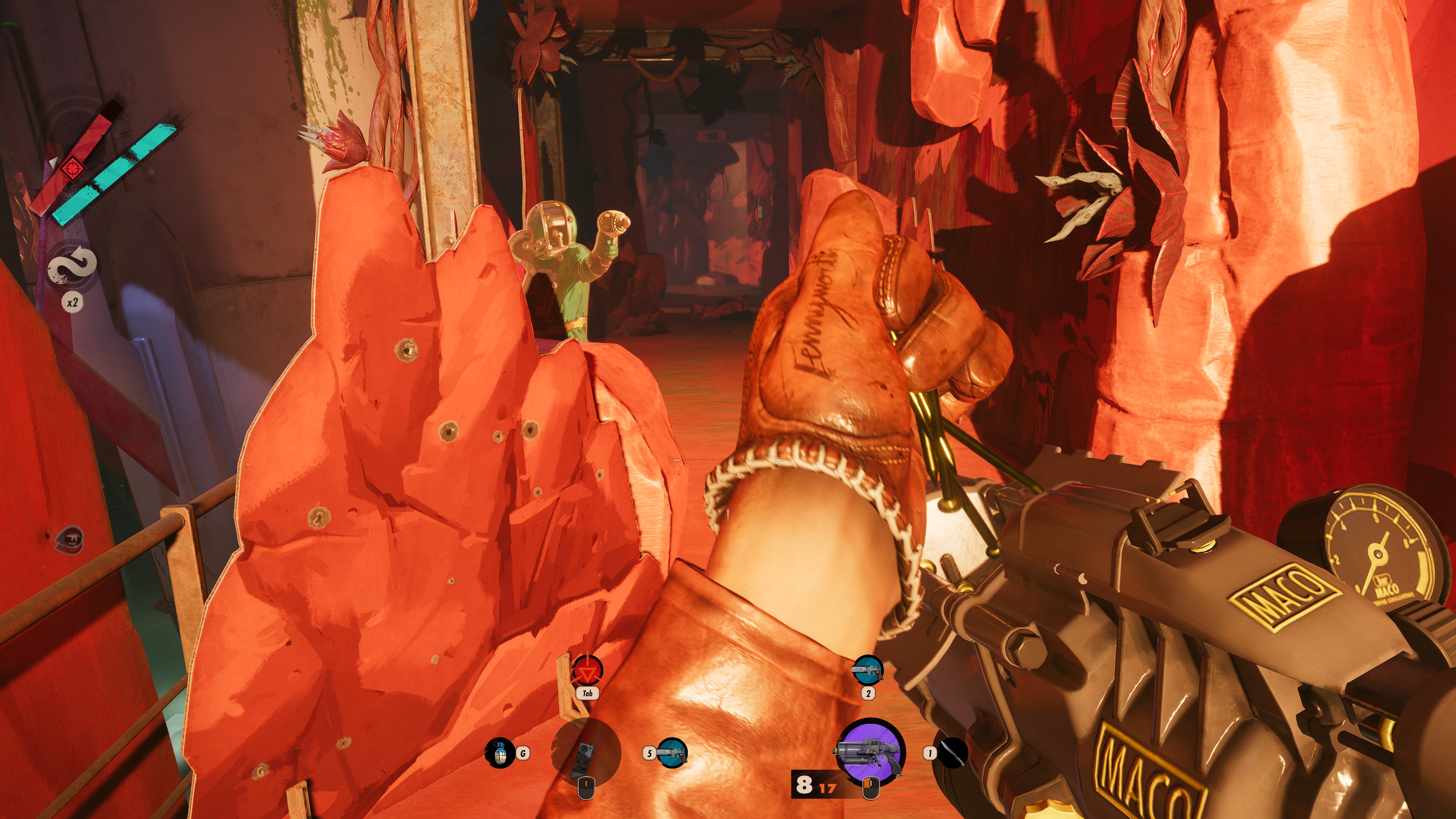
The intersection between single and multiplayer is the part of the Deathloop I was most concerned about, but it works brilliantly. The unpredictability of a rival player acts as a sprinkling of sugar in Deathloop's sandbox, resulting in thrilling cat-and-mouse chases, cunningly devised ambushes, and domino-effect gunfights that can spread across a whole area, with AI enemies and even Visionaries getting in on the action.
The success of Julianna's invasions comes largely down to how Arkane balances these encounters. On the face of it, Julianna has a huge advantage Not only does she have the Eternalists on her side, who will report sightings of Colt and fight on her behalf, Colt cannot escape the area without first hacking an antenna to unlock all the doors, giving Julianna the chance to set traps for him. She can even disguise herself as an Eternalist, masquerading as a regular grunt. Crucially though, Colt only has to kill Julianna once, whereas Julianna must kill Colt up to three times to win. This levels the playing field significantly, giving Colt players the chance to respond to ambushes, and compensating for having to account for the map's other hazards.
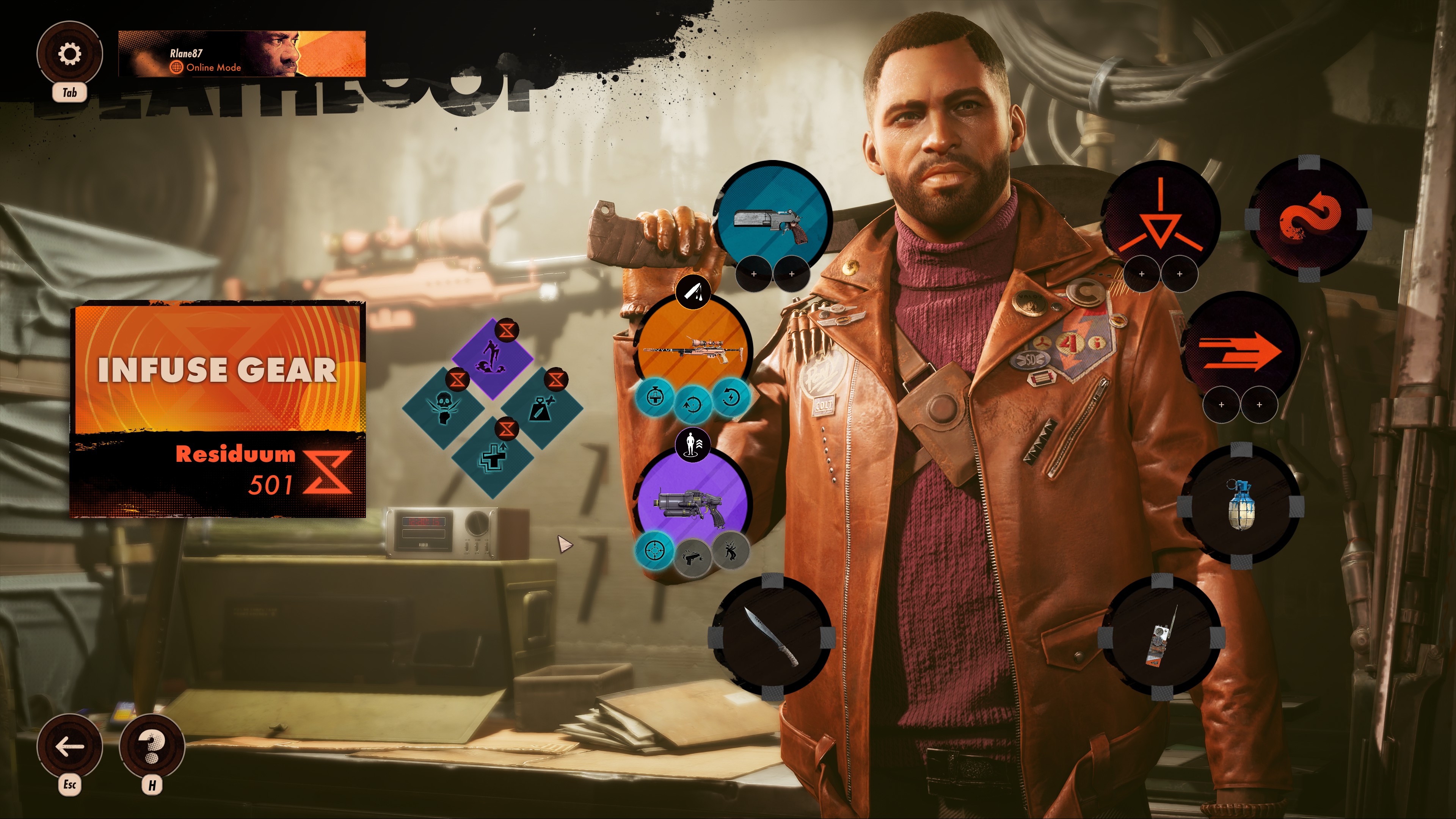
All of this enables some spectacularly open-ended encounters. While Julianna hunts for Colt, the rest of Blackreef ticks on as normal. This makes evasion a viable tactic, letting Colt attempt to complete his objectives and escape without actually facing Julianna. There's also no rule that explicitly forces Colt and Julianna to fight. Assuming Julianna can communicate her benign intentions, you can effectively play the game cooperatively, with Julianna helping Colt to complete his objectives. This approach is less rewarding for Julianna players, but the fact the game lets you do this is a great example of its flexibility.
I've spent most of this review discussing the game's rules and systems, which is a large part of what makes Arkane's games so special. But Deathloop excels in so many other areas too. Visually it's nothing short of stunning. Blackreef is a beautifully bleak island, a precipitous landscape of volcanic rock alternatively covered in russet grass or a foot of snow. The island's turbulent history is told through its architecture, with Victorian tenements and fishing cottages sitting alongside military hangars and foreboding nuclear bunkers. To this Visionaries have added their own gaudy chapter, painting walls with garish pop-art and furnishing century-old buildings with eye-popping décor.
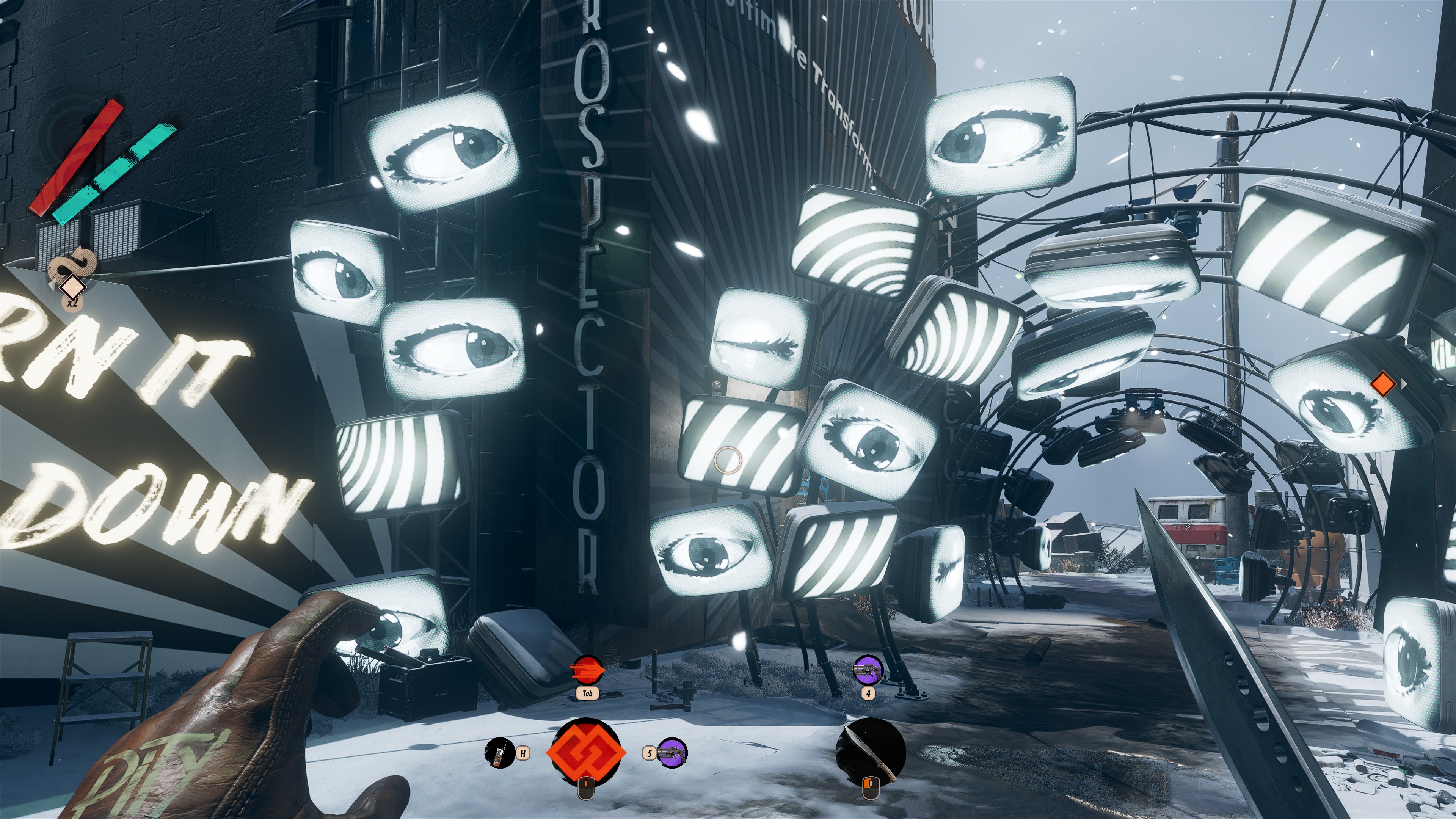
The soundtrack is one of the year's best, a kaleidoscopic homage to spy themes and mid-20th century pop. One the one hand, you've got themes the like Complex, which lend Deathloop the ambiance of a Bond film. On the other, there's the combat theme for Karl's Bay, whose electric guitar and Wurlitzer lend your battles the vibe of a car chase in The Avengers (Steed, not Stark). These are interspersed with superbly produced faux pop-songs that could easily have appeared in the charts anywhere between '65 and '75. It's marvellous.
The level design, as you'd expect from Arkane, is masterful. It's less showy than Dishonored II, lacking the gimmickry of the Clockwork Mansion or A Crack in the Slab. There are a few showpiece locations, such as Frank Spicer's fortress-like nightclub, and the Dorsey Manor, which hosts the climactic party at the end of every day. Instead, Deathloop's level design is more holistic, lending each region a layered complexity that flows in ways that's subtler than Dishonored II, but no less impressive. I've spent hours skulking across the rooftops of Updaam, looking for open windows, hidden-back alleys and other secret routes.
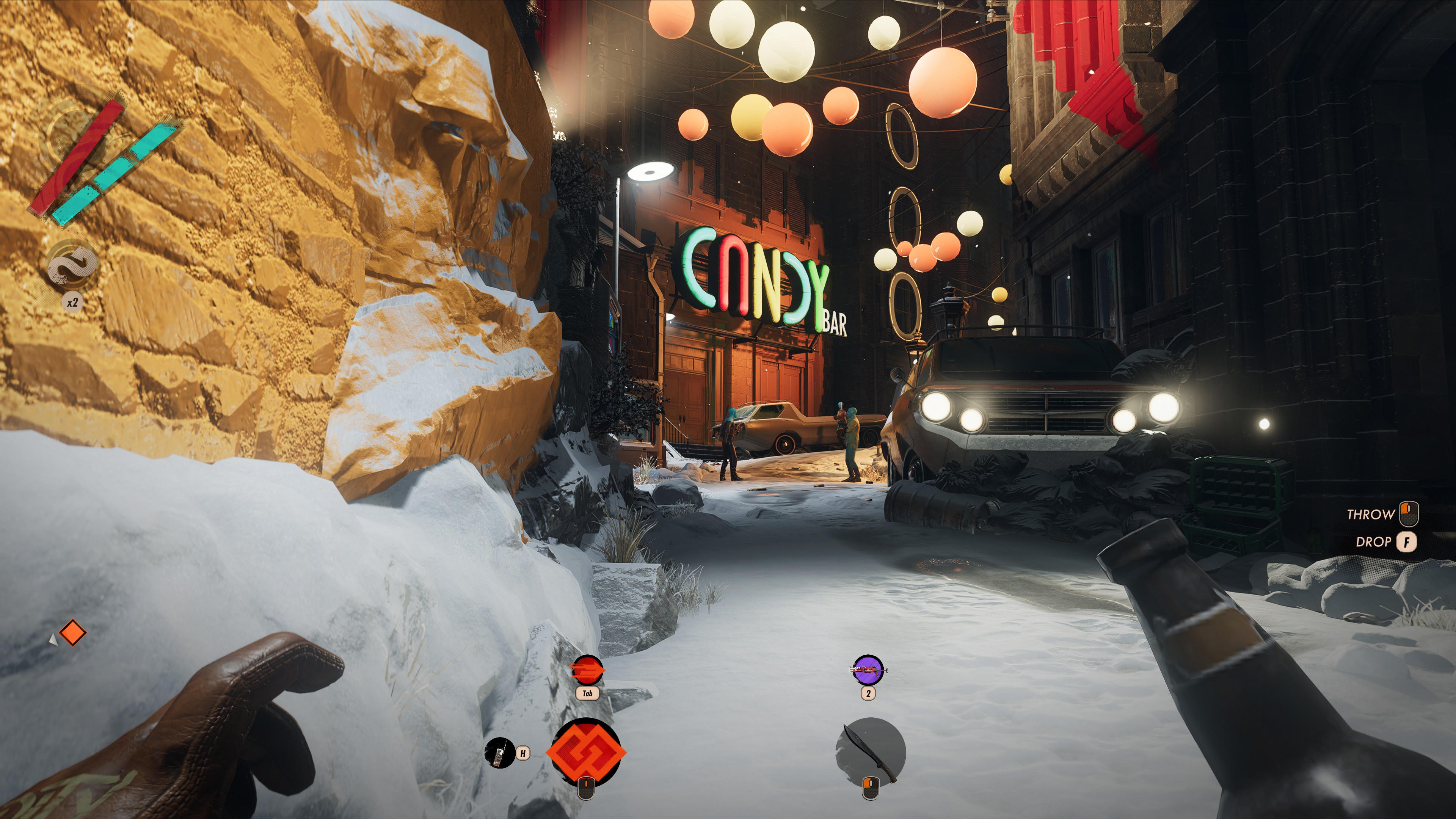
Speaking of secrets, one of Deathloop's most surprising features is its ingeniously designed puzzles. Each area is filled with all manner of safes to crack, codes to break, and mysteries to solve. Some are related to the story, while others will reward you with a unique weapon or a special character upgrade. A few are plain weird, such as the riddle-spewing computer in Karl's Bay, or the mysterious radio broadcast that goes out every morning from an unknown location.
It's a virtuoso performance in almost every department, one of those rare games that you're tempted to describe as flawless. But this is never true, and Deathloop is no exception. Most of its problems are technical. On PC, Deathloop is a very demanding game, seeming to require a truly monstrous amount of VRAM. That said running in 4k with (nearly) full settings on a 2080 Super, I didn't encounter any major performance issues. I can't say the same for bugs, unfortunately, suffering regularly from an extremely distracting audio glitch, where the audio would stutter and several sound effects cut out after killing Julianna during an invasion. Not exactly a deal-breaker, but certainly an irritation.
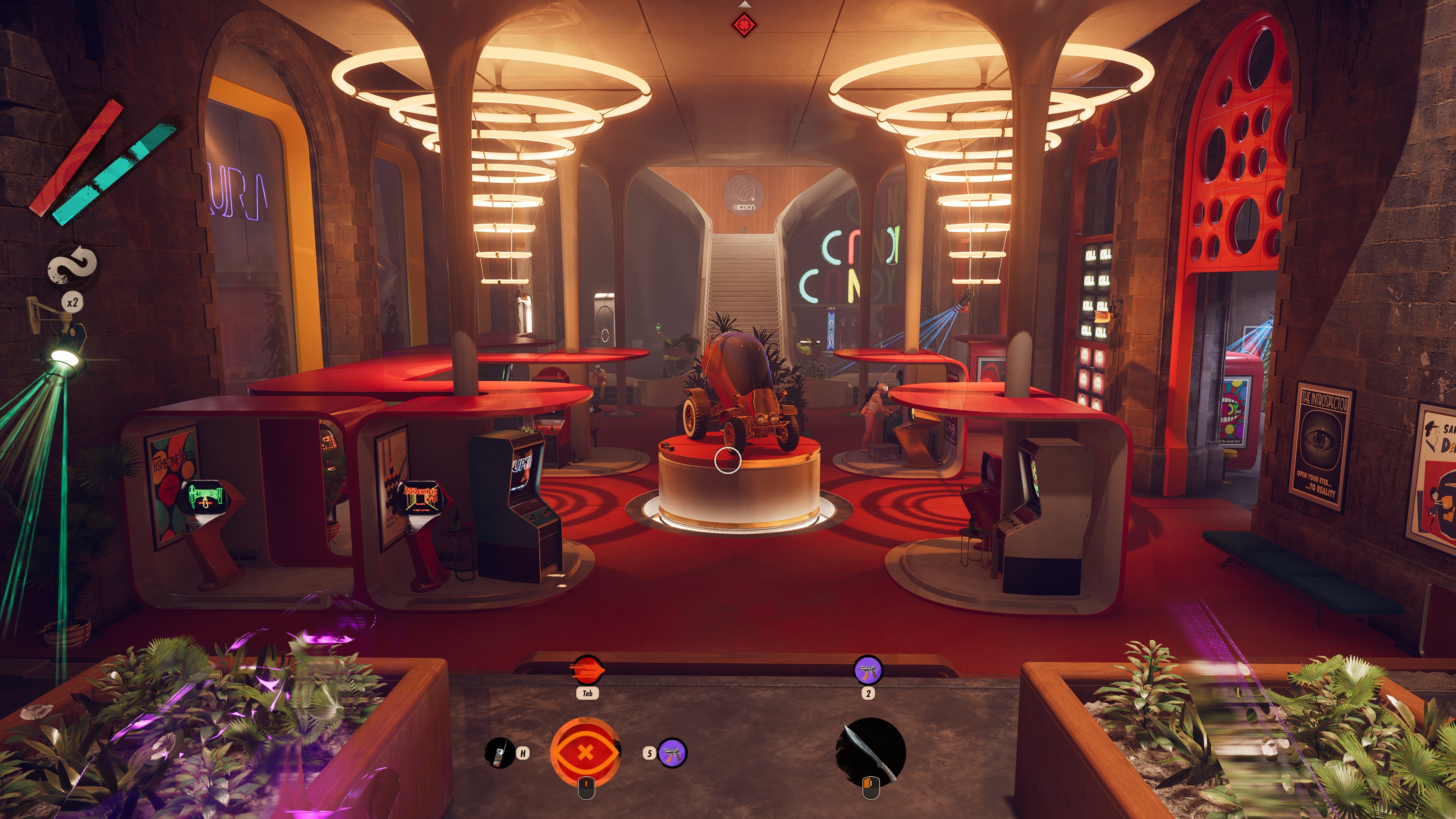
More broadly, I don't think Deathloop is as good a timeloop game as, say, Outer Wilds or The Forgotten City. Both games are better at feeding you clues to help you solve their central mysteries yourself, making you feel clever in exploiting the loop. Deathloop's 'leads', by comparison, are more like objectives, telling you exactly where you need to go and what you need to find. This is partly a consequence of intent. Deathloop's timeloop exists primarily to solve a problem with immersive-sim design, and give you agency in pursuing objectives. It succeeds on both counts, so it matters less that its detective work isn't quite so nuanced.
There's no question that Deathloop is incredible, placing itself in contention for game of the year with remarkable style. More interesting to ask is whether it's Arkane's best work. It's more ambitious than Dishonored and more entertaining than Prey, but I think only time will separate Deathloop from Dishonored 2. Arkane's previous masterpiece had such astonishing depth that, nearly five years on, players are still discovering new tricks, secrets and shortcuts. It's hard to fathom whether Deathloop has the same level of nuance, but one thing's for certain, players are going to have a huge amount of fun finding out.


MSI MPG Velox 100R Chassis Review
October 14 2021 | 15:04






Want to comment? Please log in.